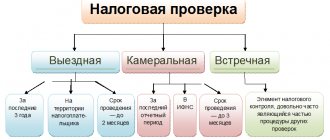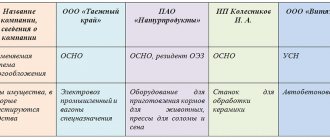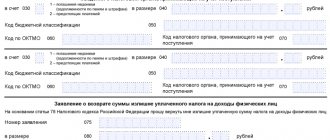Summoning a taxpayer to the inspectorate is not regulated by clear rules. Subclause 4 of paragraph 1 of Article 31 of the Tax Code of the Russian Federation does not contain a closed list of cases of summoning, which is interpreted by the tax authorities as a basis for applying this rule for almost any reason. Let's try to figure out how legitimate and justified a call from a taxpayer (fee payer, tax agent) is.
The unified form according to KND 1165009 “Notification of a summons to the tax authority”, usually used in such a procedure, requires a “detailed description of the grounds for the summons” (see Appendix No. 2 to the order of the Federal Tax Service of Russia dated 05/08/2015 N ММВ-7-2 / [ email protected] ).
According to subparagraph 4 of paragraph 1 of Article 31 of the Tax Code of the Russian Federation, the grounds for calling a taxpayer are limited to the range of issues on which explanations can be given, namely: payment (withholding, transfer) of taxes and fees, tax audit, as well as other issues related to the taxpayer’s compliance with legislation about taxes and fees .
Since the legislation on taxes and fees consists of the Tax Code and the federal laws on taxes, fees, and insurance contributions adopted in accordance with it (clause 1 of Article 1 of the Tax Code of the Russian Federation), then, therefore, the grounds for calling the tax authority must be related exclusively to the execution Tax Code of the Russian Federation and relevant federal laws relating to taxation.
Meanwhile, in practice there are completely unlawful grounds.
Who can the inspection call?
It is convenient for inspectors when the director of the company personally comes to give explanations.
You can ask him about the company’s activities and make sure that he actually manages it. Must the director always appear for all inspection calls?
Another employee can also provide explanations - the director cannot be called on every occasion and fined for failure to appear.
According to paragraphs. 4 paragraphs 1 art. 31 of the Tax Code of the Russian Federation, inspectors may call the taxpayer to receive clarification on the calculation of taxes and contributions, inconsistencies in the declaration and other issues. But nowhere does it say that the director is personally obligated to appear at the Federal Tax Service.
The legal representatives of a legal entity are its director and any other person who is recognized as a body of the legal entity.
How to protect your company from unnecessary claims?
Issue a power of attorney to the chief accountant, lawyer or other employee. The power of attorney must indicate that the manager transfers to these people the right to represent the company in relations with the Federal Tax Service and give explanations. You can create regulations that will indicate which employees will provide explanations on which categories of issues.
Important
: It was the director who received the call to the inspection, so he must go in person. Another employee cannot go in his place, but has the right to accompany the director.
Do I need to go to an inspection call from another city?
The inspectorate at the place of registration of the company's branch may send a summons to the director of the head office. It is not necessary to go to another city for clarification. Inspectors must call the branch director for clarification if he has a power of attorney from a representative of the company. This is confirmed by the letter of the Federal Tax Service No. ED-4-2 / [email protected] dated February 15, 2017.
Also, a company representative is not required to travel to the Federal Tax Service of another region to give explanations about his counterparty. Someone else's inspection must forward the request to the tax authorities at the place of registration of the company, so that they can call the taxpayer.
If the company does receive a notification from someone else’s inspectorate, you need to call the tax authorities and find out what’s going on. Maybe written explanations will be enough for them. If not, the company representative will have to go on a business trip.
Providing explanations when errors and contradictions are identified
If you have received a notice of an identified error (contradiction, inconsistency) in the reporting you submitted, in response, the organization may submit an updated tax return in which the identified inconsistencies and contradictions will be eliminated, or provide explanations. The form for providing explanations is not defined by tax legislation, therefore the organization has the right to use the forms recommended by the Federal Tax Service (for example, see Appendix No. 3 to the letter of the Federal Tax Service of Russia dated 04/07/2015 N ED-4-15/5752) or draw up explanations in any form. To support your arguments, you can attach to your explanations extracts from accounting and tax registers and other supporting documents.
In practice, organizations often have to receive requests from tax authorities to provide explanations for situations where there are no inconsistencies and contradictions, for example, discrepancies between the lines of financial statements and income tax returns. In this case, the requirements of the tax authorities are unlawful, since the financial statements contain accounting information generated in accordance with the rules provided for by the relevant legislation. The tax return contains tax accounting information, which is different from accounting, and this is not a contradiction.
Taxpayers have the right not to comply with unlawful acts and demands of tax authorities (subclause 11 of clause 1 of Article 21 of the Tax Code of the Russian Federation). Therefore, when receiving such requirements, you first need to make sure that they comply with current legislation. What to do if the tax authority, in demanding clarification, clearly exceeds its authority, and the organization considers compliance with such requirements inappropriate, will be discussed in the situation below.
What are the grounds for calling
Tax officials must indicate the purpose of the call in the notice sent to the taxpayer. Inspectors have the right to call for various reasons:
- errors in reporting;
- unjustified deduction of VAT;
- low tax burden;
- tax audit of the company;
- verification of counterparties;
- other cases related to the implementation of legislation on taxes and fees.
This wording of paragraphs. 4 paragraphs 1 art. 31 of the Tax Code of the Russian Federation allows inspectors to call taxpayers on many issues.
What should you prepare for if the grounds for the call are not clear from the notification?
It happens that the notification does not contain clear wording as to what explanations the inspectors need. In this case, the taxpayer has the right to clarify what explanations are necessary. To do this, you need to send a written request to the inspection. A detailed notice will help you prepare the necessary information and documents before your visit.
What can tax authorities do?
The most significant are the right to demand the provision of any documents that are related to the tax base, as well as to call all participants in the relationship to give appropriate explanations for making payments and receiving income, the right to carry out tax audits, which may be related to the seizure of documentation and inventory.
Ordinary people who are not involved in business activities most often do not understand the importance of realizing these rights. In the course of establishing active contact between tax inspectors and the persons they inspect, they may almost completely lose the opportunity to carry out entrepreneurial and any other economic activities.
If a tax audit, accompanied by a complete seizure of documentation, lasts too long, then the business entity may find itself on the verge of bankruptcy or become bankrupt.
This can be understood by comparison with a search. It lasts only a few hours, and the very next day the premises where it was carried out are ready for practical use. If inventory is being taken at the warehouse, then it can take much longer, sometimes a whole month. All this time, the warehouse is completely or partially lost for work. As a result, the enterprise cannot operate fully, stands idle, suffers losses and closes.
Tax authorities also have the right to determine the amount of taxes payable by taxpayers to the budget system. This can be done with simple arithmetic calculations only if we are talking about determining the amount of 13% of the salary at the minimum wage level. Entrepreneurial activity may involve thousands of different complex operations, which may give rise to different approaches to calculating the taxable base. Calculating the final amount to be paid, in this case, is not just a mathematical operation, but something more important.
It should be noted that the concept of “right” in this context is a designation of the legitimate boundaries of an official’s performance of his official duties. Here, the understanding of rights is based not on the basic foundations of a civil legal society, but on the relationships that arise between citizens and representatives of government agencies.
The right of the tax authority is ensured primarily by the fact that the state has established a certain internal policy in the field of taxes and fees. The degree of authority exists until other regulations are adopted.
This is fundamentally different from the basic civil rights and freedoms of a democratic society, for example, human rights, which are based on a number of international agreements, principles of morality, morality and ethics.
An official, in this context a tax inspector, has the right to issue orders and address participants in tax relations with demands. If they refuse to obey him, then they have the responsibility provided for in Part 1 of Art. 19.4 Code of Administrative Offenses of the Russian Federation.
However, it is interconnected with the rights of citizens and officials themselves, which cannot be violated by decisions of the tax authority. Thus, administrative liability is possible only for failure to appear at the tax authority, and not for refusal to give explanations.
How to respond to an oral challenge
Inspectors must send notice of the call to provide explanations in writing. A taxpayer has the right to ignore an oral invitation to the Federal Tax Service, for example, in a telephone conversation. There will be no consequences.
The notification of the call must be drawn up in accordance with Form No. 2 of Federal Tax Service Order No. ММВ-7-2 / [email protected] dated 05/08/2015. The company must respond to such a document.
Within six working days you must send a receipt, otherwise the current account may be blocked in accordance with paragraphs. 2 p. 3 art. 76 Tax Code of the Russian Federation.
Important
: You cannot ignore a call notification if it does not have a stamp on it. Inspectors are not required to issue a notification on a special form with a corner stamp or affix a stamp on it, the Federal Tax Service stated in letter No. ED-4-2/ [email protected]
Form for sending requested documents
The Tax Code does not contain an article obliging taxpayer organizations that have received requirements in electronic form to fulfill them exclusively in the EDI format, i.e. Having received a request to provide information in electronic form, the organization has the right to prepare and send a response on paper to the Federal Tax Service Inspectorate. However, as practice shows, payers who receive a request in the EDI format also provide response documents in electronic form.
Format electronic documents and paper documents
Paragraph 2 of Article 93 of the Tax Code of the Russian Federation regulates the procedure for submitting formatted electronic documents - according to the provisions of this article, through EDI, the payer has the right to provide either an electronic form of a document of the established format (in particular, an invoice), or scanned copies of paper documents.
In order to transfer scanned copies of paper documents, they must be converted into a certain electronic format, which was previously approved by the provisions of Order No. ММВ-7-6/16 of the Federal Tax Service of Russia dated January 18, 2017. The transfer of such documents is carried out via telecommunications through an EDI (electronic document management) operator. A mandatory requirement for such documents is their confirmation by an enhanced qualified electronic signature of the person being verified or his representative.
In the event that the payer prefers to exercise his right to provide documentation on paper, he personally, or through a representative, or by sending registered mail using the appropriate Russian Post service, sends certified copies of documents drawn up on paper to the Federal Tax Service.
IMPORTANT! If documentation is provided at the request of the Federal Tax Service on paper, all sheets must be bound and numbered, and notarization is generally not required (clause 2 of Article 93 of the Tax Code of the Russian Federation).
Electronic documents “non-format”
The articles of the Tax Code do not regulate the method of presenting documents requested by tax authorities, in the case where they were originally drawn up in electronic format, but not in the established format (for example, contracts). At the same time, according to the provisions of the Tax Code of the Russian Federation, if the so-called “non-format” documents, after being drawn up, were signed with an electronic signature and transferred to the counterparty through the EDI system, they are legally significant .
According to the text of the letter of the Federal Tax Service of Russia No. SA-4-7/15871 dated 09.09.2015, the document, before it is submitted to the tax authority, must be printed and certified in the usual manner, making a note that it was previously has already been signed electronically. After completing this procedure, the “unformatted” document can be provided to tax inspectors for review. Such documentation can be sent either by registered letter by Russian Post or during a personal visit to the Federal Tax Service by the taxpayer.



